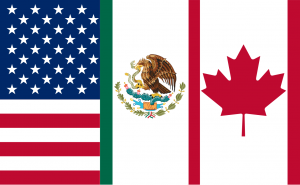 As another round of negotiations kicked off last week, the Trump Administration signaled that it was close to a revamped North American Free Trade Agreement (NAFTA), but talks ended without a deal.
As another round of negotiations kicked off last week, the Trump Administration signaled that it was close to a revamped North American Free Trade Agreement (NAFTA), but talks ended without a deal.
The Administration has a limited window of time in order to force a Congressional vote before the November mid-term elections. House Speaker Paul Ryan (R-Wis.) has said he needs the Administration to give notice of its plan for NAFTA by Thursday, May 17 in order to approve the deal under fast-track authority, but negotiators are not poised to meet this deadline. Time is also running out for Mexican negotiators, who have indicated that they would prefer to sign a new NAFTA agreement before presidential elections on July 1.
High-level trade officials from the United States, Canada and Mexico have indicated that talks had been gaining momentum after making little progress for months. However, contentious issues such as tariffs on automotive and farm goods, as well rules for handling investment disputes, remain matters of key interest to the energy industry. While President Trump gave an exemption to Canada and Mexico regarding steel and aluminum tariffs, he has also stated that this exemption would be dependent on how NAFTA is rewritten. President Trump has indicated he is willing to withdraw the U.S. from NAFTA if significant changes aren’t made.
President Trump’s chief trade negotiator, Ambassador Robert Lighthizer, has said that a deal reached in late May or early June could theoretically get passed. However, Ambassador Lighthizer hasn’t show many signs of softening on proposals that Canada and Mexico see as harmful to their interests.
One negotiating position that could significantly impact the North American energy market is Ambassador Lighthizer’s call to eliminate or weaken NAFTA’s dispute-settlement provisions. Last month, Senate Finance Committee Chair Orrin Hatch (R-UT), House Ways and Means Chairman Kevin Brady (R-TX) and more than 100 colleagues wrote a letter to Ambassador Lighthizer, cautioning him that removing the investor-state dispute settlement mechanism (ISDS) would endanger support for the agreement.
ISDS agreements are common in modern trade pacts and bilateral investment treaties, and the U.S. has won all 11 cases it was involved in with NAFTA arbitration panels.




